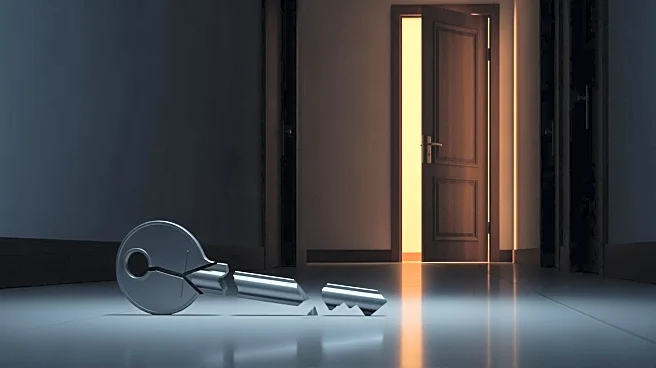What is the story about?
What's Happening?
Microbot Medical Inc., a company specializing in robotic medical technology, has been granted its first patent in Japan for its LIBERTY Endovascular Robotic System. This patent covers the core technology of LIBERTY, which includes a compact robotic device designed to drive and manipulate surgical tools. The company, based in Hingham, Massachusetts, has also received patents in the U.S., China, and Israel recently, along with a 510(k) clearance from the U.S. Food and Drug Administration (FDA) for LIBERTY. The system is intended to enhance precision, safety, and efficiency in endovascular procedures, offering remote operation capabilities. Microbot Medical is focusing on the U.S. market but sees Japan as a strategically important market for expansion.
Why It's Important?
The acquisition of a Japanese patent is a significant milestone for Microbot Medical, as it opens up new opportunities in a market known for its advanced medical technology sector. This expansion could lead to increased adoption of the LIBERTY system, potentially improving procedural outcomes in neurovascular, cardiovascular, and peripheral vascular surgeries. The company's recent FDA clearance and international patents position it well for global market penetration, which could drive innovation in robotic-assisted surgeries. The potential for reduced procedure costs and improved care quality could benefit healthcare providers and patients alike, while also enhancing Microbot Medical's competitive edge in the medical robotics industry.
What's Next?
Microbot Medical plans to leverage the proceeds from a recent stock sale, which could raise up to $92.2 million, to support the development and commercialization of the LIBERTY system. The company aims to expand its intellectual property applications and pursue potential acquisitions to broaden its technological capabilities. As Microbot Medical accelerates its commercial launch plans, it will likely focus on regulatory approvals in other markets that consider FDA clearance as a benchmark, potentially expediting local adoption of the LIBERTY system.
Beyond the Headlines
The development of the LIBERTY system highlights the growing trend towards automation and precision in surgical procedures, which could lead to a paradigm shift in how surgeries are performed. The ethical implications of robotic-assisted surgeries, such as the potential reduction in human error and increased accessibility to complex procedures, could transform patient care standards. Additionally, the modular design of the LIBERTY system may pave the way for customizable surgical solutions, catering to diverse medical needs and expanding the scope of robotic interventions.
















